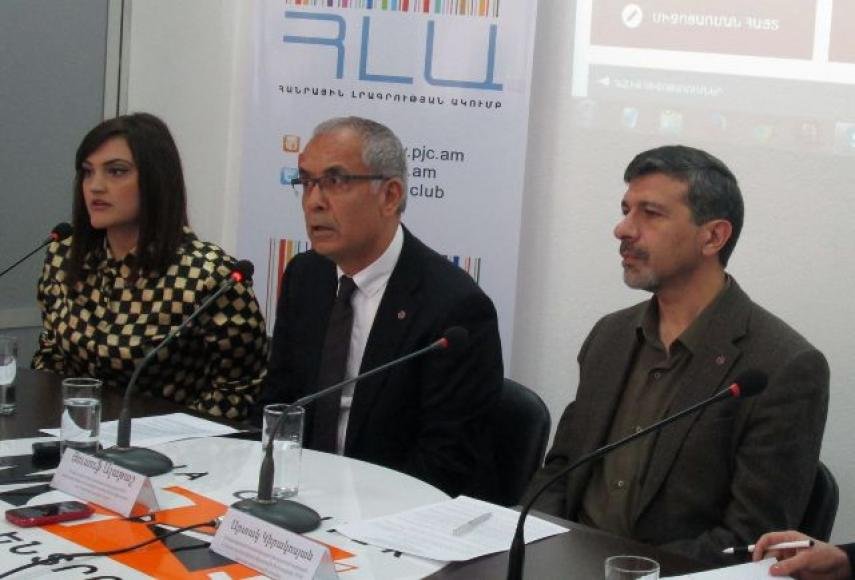NON-GOVERNMENTAL ORGANIZATION
Human rights defenders from Armenia and Turkey call upon: "Open the border, recognize Armenian Genocide, start a dialogue".

The society in Turkey now casts a different look on the Armenian Genocide and speaks out more freely, rights defenders said at the Media Center hosted press conference on 23 April, 2015.
Artak Kirakosyan, chairman at the Civil Society Institute, deputy general secretary at the International Federation for Human Rights (FIDH), said Armenia seeks condemnation, as well as it urges the world to prevent such crimes in future.
"The Armenia-Turkey reconciliation and Turkey's recognition may evolve into a positive effect on the Armenian-Azerbaijani relations. There have been substantial changes within Turkey and the issue is perceived profoundly and spoken about more openly. The world movement to commemorate the Armenian Genocide Centennial will increase public awareness in Turkey," Kirakosyan said.
FIDH (International Federation for Human Rights) and its member organisations in Armenia, CSI (Civil Society Institute) and in Turkey, IHD (Insan Haklari Dernegi), HRFT (Human Rights Foundation of Turkey) adopted a manifesto on the Armenian Genocide Centennial.
Yusuf Alataş, deputy director at the International Federation for Human Rights (FIDH) and executive board member at the Turkey-based Human Rights Association, outlined the sequence of actions required to enhance the Armenia-Turkey normalization process: open borders, recognize the Genocide and start a dialogue.
"We included the reparation in the manifesto, but we should tackle issues one by one. The genocide is not only a political, legal or human but more complete issue and one of the most important issues of the 20th century. It is not that important what countries say about the genocide. What really matters is how they recognize and condemn it to prevent future ones. It is also an ethnic problem, and these nations will have to reconcile and live in peace. Turkey has to step up without any preconditions and acknowledge that a genocide is a genocide. The Turkish authorities should publicly and officially apologize. Then we have to find a common ground for the reconciliation of the two peoples," said Alataş.
Turkey must open the borders, spurred by inner developments instead of giving way to appeals by other organizations, the speaker believes. And presently, Turkey has that potential.
Kirakosyan said the Centennial is a deep milestone but never an end to the struggle: "The struggle will go on and we'll see the reaction in Turkey."
Although Armenians and other ethnic minorities in Turkey have issues, there are major changes in Turkey: taboo topics are discussed more openly and freely now. People feel more comfortable talking about these issues, Alataş said.
"History is full of blind policies employed by various nations. It is time hate speech was put an end to, with every state coming to terms with its history. It is crucial for reckoning with the truth and building the future of coming generations. If Turkey represented criminals as murders instead of making them heroes, everything would fall into place," Alataş said.
Source www.media-center.am

